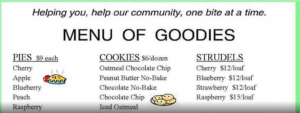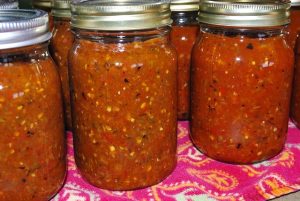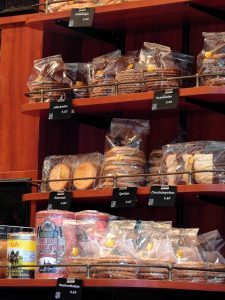 I am going to make this post an introduction to my site. If you have been here before, the latest information is right under this post. I want to give my new visitors an overview of what I am doing here. If you are new, Welcome, please spend some time looking around. If you want specific information, simply use the search box to the right of this post.
I am going to make this post an introduction to my site. If you have been here before, the latest information is right under this post. I want to give my new visitors an overview of what I am doing here. If you are new, Welcome, please spend some time looking around. If you want specific information, simply use the search box to the right of this post.
Cottage food laws have opened the door for you to start your baking business. Today is a dream come true for many bakers around the country who have yearned for the opportunity to make money at home baking. Unfortunately, simply baking well is not the only ingredient to building a successful business. If you have spent any time at all here, you know I have talked about taking the steps to set up your business.
That link is just one of many articles I have written about running a business. After you set up your business, then you have to start getting the word out. Social Media makes it affordable for all of us to spread the word that we are open for business. If you are working from home, it is a challenge to make others aware that your specialty items are now readily available to the world. Are your pies always requested for the church pot lucks? Does everyone at the office hint that your cookies are the perfect addition to any office party? Selling your products is critical to any business.
You see, those links are articles here on my site that give you really critical information if you are thinking of starting a business. I invite you to spend some time just looking at things already here to help you start your business. I am also going to encourage you to follow the information on how to build your website. It might seem funny that a website that talks about how to make money baking would cover using WordPress. I have to tell you that the purpose of my site is about how to make money from home [Read more…]





 It is not quite enough to be a really good baker to make money doing it., The fact is no matter what your talent or skill is, it probably won’t bring in
It is not quite enough to be a really good baker to make money doing it., The fact is no matter what your talent or skill is, it probably won’t bring in  health bars, nuts/seeds, crackers. Maybe pastries are your specialty, fruit pies, fruit tarts, fruit empanadas, or cones.
health bars, nuts/seeds, crackers. Maybe pastries are your specialty, fruit pies, fruit tarts, fruit empanadas, or cones. states have passed cottage food laws. But, and there always seems to be a “but” that lurks in the shadows, for many, although they are now legally able to sell their baked goods from home, have hit a wall at how to get the word out that they are open for business. There is good news , it is not as hard as it used to be to let people know you are ready and willing to make delicious baked goods for them. You are now a click away from a sale if you set it up correctly.
states have passed cottage food laws. But, and there always seems to be a “but” that lurks in the shadows, for many, although they are now legally able to sell their baked goods from home, have hit a wall at how to get the word out that they are open for business. There is good news , it is not as hard as it used to be to let people know you are ready and willing to make delicious baked goods for them. You are now a click away from a sale if you set it up correctly.


 Shortly after the cottage food laws were passed with a large majority, the health department began to greatly limit what cottage laws could permit. They tried for two consecutive years to get changes to the laws passed with no success.
Shortly after the cottage food laws were passed with a large majority, the health department began to greatly limit what cottage laws could permit. They tried for two consecutive years to get changes to the laws passed with no success.